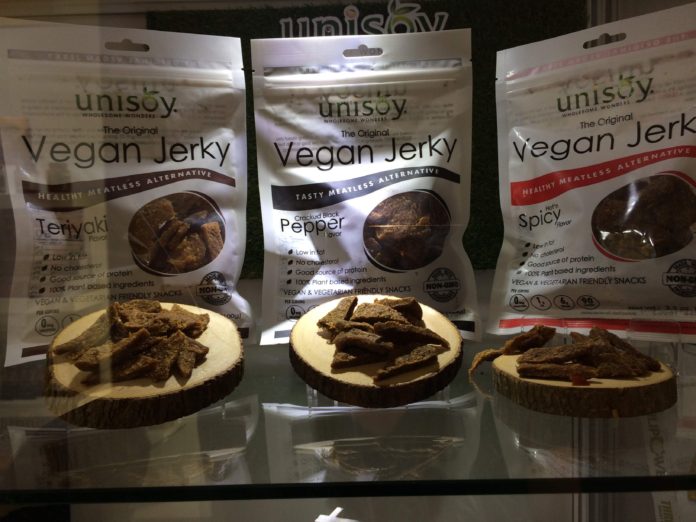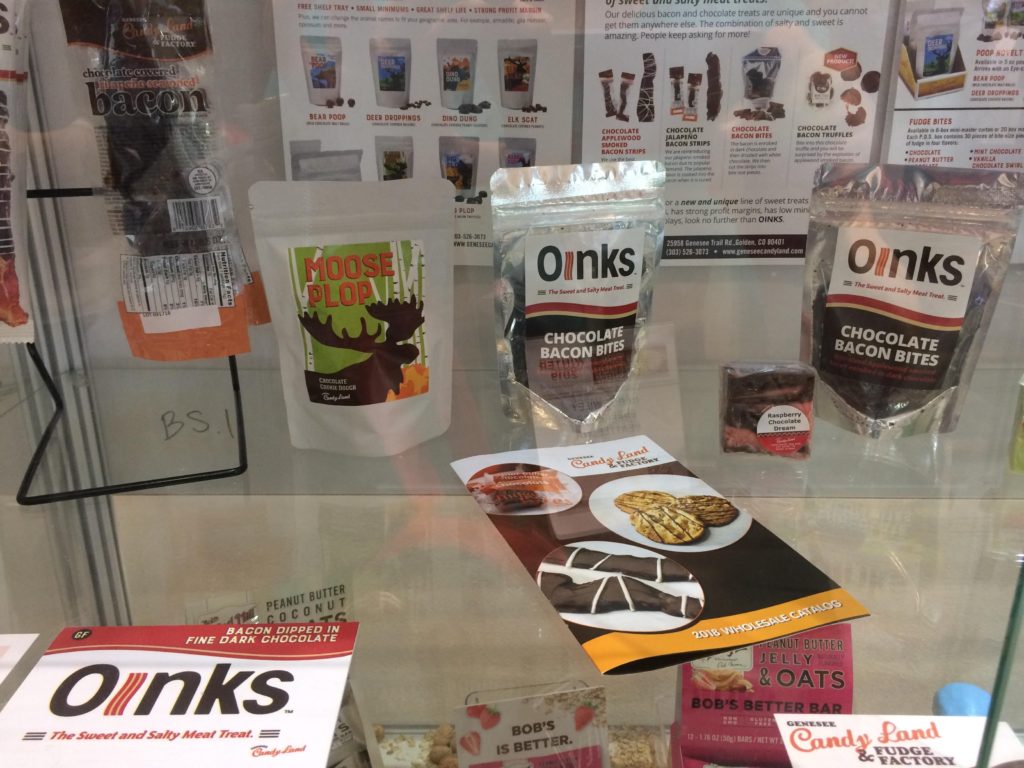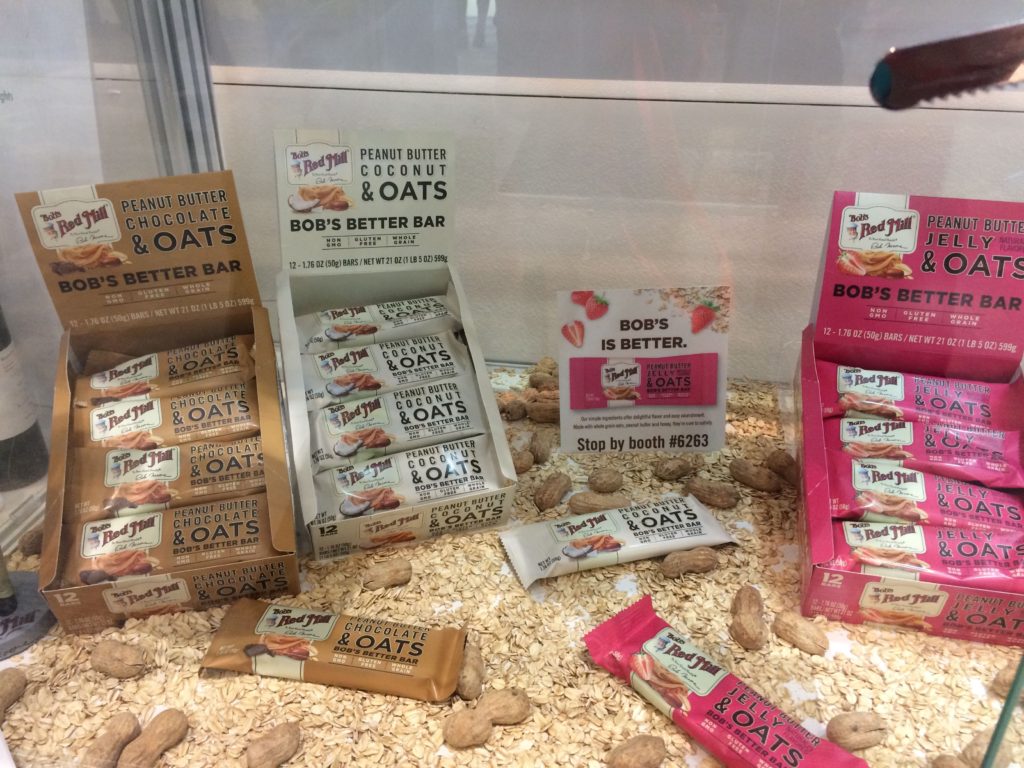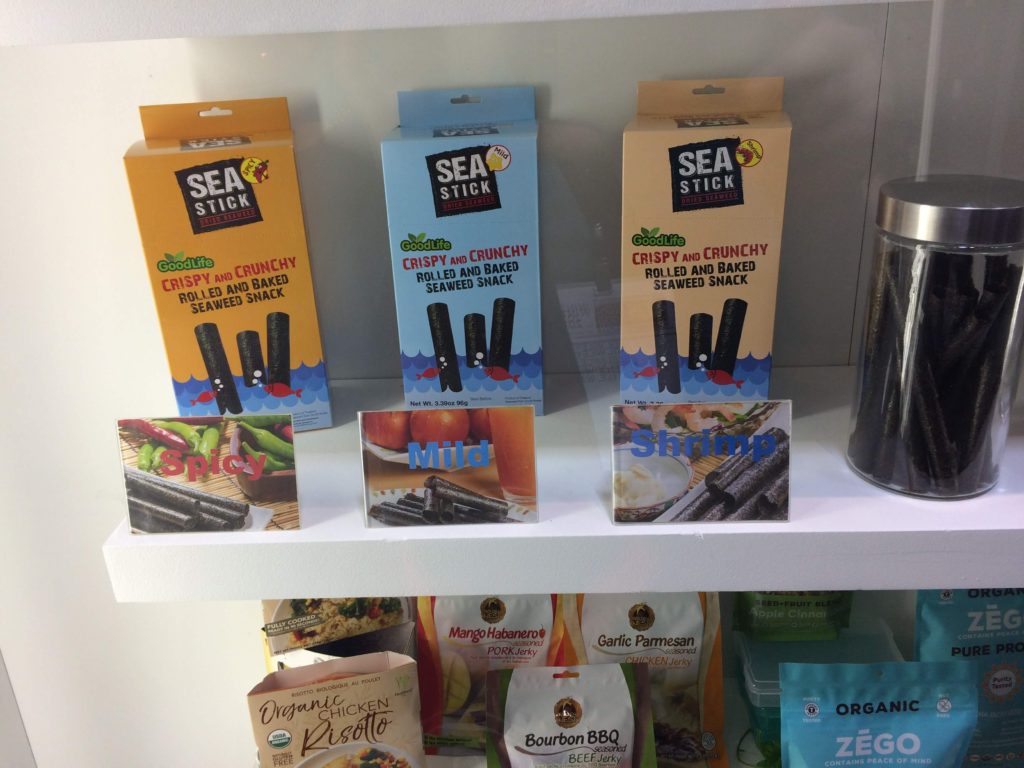
As I navigated the 1,400 exhibitors at the 2019 Winter Fancy Food Show (WFFS) in San Francisco, one of my first impressions was, “Wow, there’s a lot of cheese and chocolate here.” But after three days of walking and tasting, I had seen a full range of food products that could appeal to almost any palate.
Let’s look at five show trends identified in the Official Show Daily paper.
- A number of products reflected the regional cuisines of Africa, South Asia, and Latin America, consistent with 2019 food trend predictions. An Ethiopian spice blend, West African fonio (a type of millet), rice with Latin American sazon seasoning, mole powder, and Indian curry sauces were among the offerings.
- Functional foods containing prebiotics and probiotics is another on-going trend. Products at the show included yogurts (both dairy and non-dairy), fermented beverages like kombucha, probiotic olives, and prebiotic snack bars.
- Foods for people eating keto, paleo, vegan, gluten-free, and other specific diets were readily available. The show had vegan jerky, keto ice cream, paleo chocolate, and numerous gluten-free bakery items. Enjoy Life promoted its new FODMAP-friendly products.
- Dairy alternatives are expanding beyond the common soy, almond, and coconut options. Oat milk is becoming especially popular. Other plant-based milk options included hemp, peanut, macadamia, walnut, cashew, and brown rice.
- Companies are finding ways to use food byproducts that would otherwise go to waste. These upcycled food items included pickles made from ugly produce, tea made with coffee fruit (berries left over from coffee processing), a vegetable drink made from leftover pickle juice, and a sparking beverage made from whey produced in the making of dairy products.
Up and coming food companies
The WFFS had several themed sections, including Incubator Village that featured 41 startups from seven U.S. food incubators. The Chobani Incubator included seven companies with products ranging from natural baby food to cold-crafted hummus to caffeinated energy bars. The El Pajajo CDC Kitchen Incubator offered up companies making probiotic miso dressing, refrigerated mole powder, Louisiana-style sweet potato pie, and more.
Other products from startups included a keto-approved ice cream; salsa, pickles, and seasonings made from hand-harvested Alaskan kelp; hand-crafted Japanese fermented foods; rum from a single-estate distillery; and grain-free tortilla chips.
What’s next in food?
What’s Next in Food showcased companies working in the areas of sustainability and biodiversity. From finding solutions to food waste to promoting regenerative agriculture, these companies are pioneering new ways to produce food. For example, Renewal Mill upcycles byproducts from food manufacturing into ingredients and products. Cambridge Crops develops natural, edible coatings that can extend the shelf life of food. Full Cycle Bioplastics turns organic waste into PHA (polyhydroxyalkanoate), a compostable and marine-degradable bioplastic.
The Future Market exhibit focused on biodiversity, noting 75% of the world’s food comes from only 12 plants and five animal species. The underlying theme was that diversifying food crops and animals makes the food system more resilient and helps protect it from threats such as climate change. Companies offering diverse options included Believe in Bambara, a supplier of bambara bean ingredients to food companies; Kuli Kuli, which sells moringa products; and The Jackfruit Company, which produces plant-based meat alternatives using jackfruit.
Another feature of the WFFS were the educational panels. Topics included how to capture the dinner market, women’s roles in reshaping the future of food, and technology in the food system. The range of viewpoints presented combined with the variety of food products on exhibit at the WFFS showcased the breadth of the specialty food industry.









